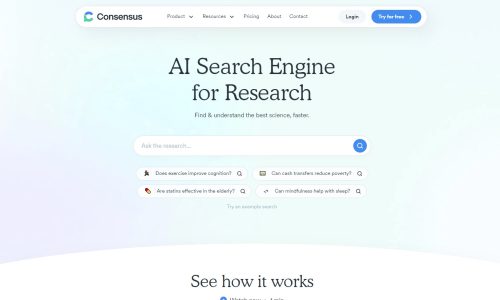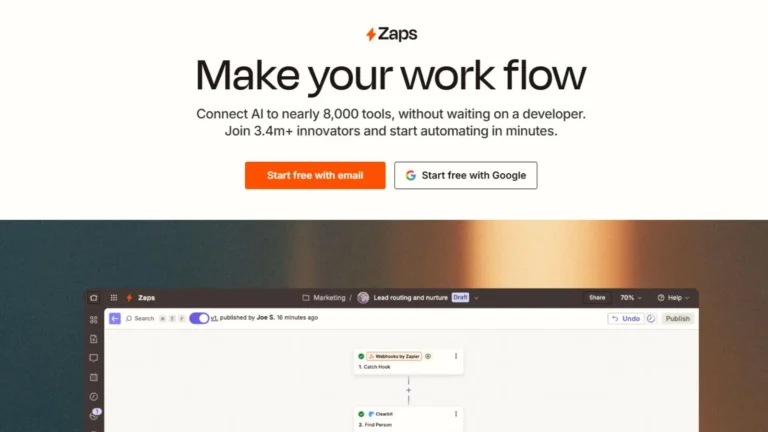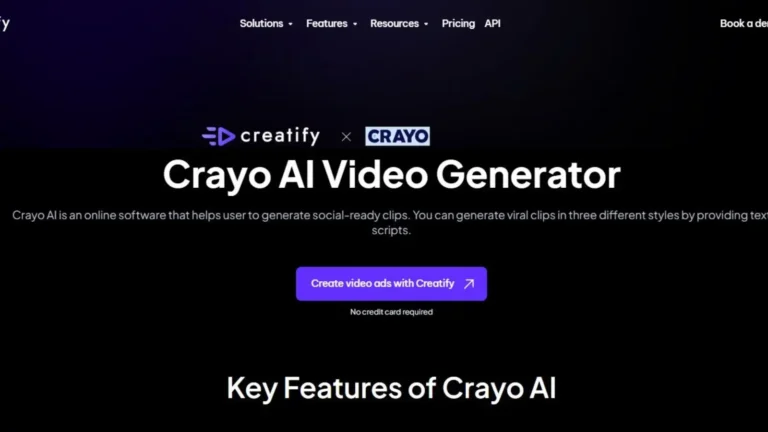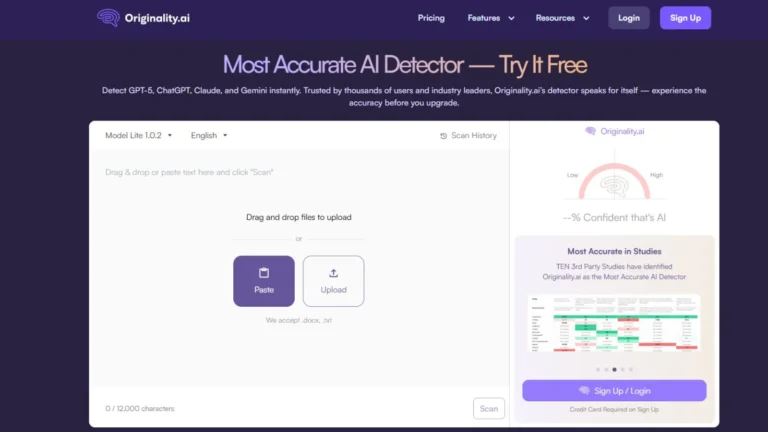Visit Tool
Consensus: AI-Powered Search Engine: In search of Research, Revolutionizing Today’s Fast-Paced Digital World
With more access to tons of information today through digital means, it’s hard not to have information on your finger. For any researcher, student, or professional, finding accurate and relevant content within the overwhelming plethora of search results can be a task filled with long hours spent going through search engines.
This may be where you have credible sources mixed with irrelevant material. Enter Consensus, an AI-driven search engine designed specifically for research-oriented access to databases. Cut through the noise with a streamlined, efficient, and trusted means of gaining scientific information through Consensus. By focused delivery of insights culled from a repository of over 200 million scientific papers, there’s a good case here that Consensus can revolutionize the approach to academic research and knowledge gathering.
What Is Consensus?
It is essentially an AI tool designed to enhance the research capabilities of the user. Unlike the usual search engines, Google, or Bing, which merely rely on keyword matching for the presentation of pages from anywhere on the internet, the Consensus focuses only on academic and scientific sources, which enables users to carry out research with papers and peer-reviewed studies as professionally relevant.
The mission of the platform is simple and profound at the same time: democratize access to knowledge of experts, and make finding reliable research speedier and easier. Whether you are a student working on a thesis, a professional conducting market research, or merely an interested person who wants to gain some scientific knowledge, Consensus offers a clean, user-friendly interface through which it provides only the most relevant results.
Core Features of Consensus
True strength of Consensus lies in its special features, all designed to facilitate high-quality research:
Extensive Coverage: Consensus provides access to over 200 million scientific papers. It, therefore, boasts an unmatched reach into the world of academic research, making it an absolute tool for anyone who needs comprehensive, reliable information. Whether it is a literature review, reporting, or just keeping abreast with recent developments in a field, Consensus offers an access to material which is hard to achieve with others.
Highly trusted results, one of the actual strengths of Consensus, enable not only verifying sources but also linking any result directly to an actual scientific study to ascertain that information received is credible and peer-reviewed. Amidst rampant misinformation across most social media sites, fields like medicine, climate science, or technology are in extreme demand for the correct information.
Instant Analysis: Consensus employs the power of GPT-4 and other Large Language Models to deliver in-depth, to-the-point summaries of study results. This, really, is a game-changer for users who have to condense complex information in the shortest amount of time possible. No longer will a whole paper need to be read from cover to cover simply to get its bottom line, for Consensus provides an encapsulating summary of the findings of the study to save precious time while ensuring that users get the core insights they need.
Also, Consensus promises to make the search and research process ad-free. This is a feature that sets it apart from other conventional search engines, which expose users to a deluge of sponsored links and ads. This makes the focus squarely on content, and hence the research process will be much more efficient compared to one impeded by distractions.
Benefits of Using Consensus
The features described above all work together to give the following clear-cut advantages:
Time savings: arguably one of the greatest benefits of Consensus is its ability to save time for users. Traditional literature reviews take hours, if not days, when multiple papers are searched for relevant studies. With Consensus, summarized results are instantly provided to the user, giving a clear view in far less time than would be required for traditional literature reviews. This connects directly to research papers, so one can jump from summary study, in case he or she needs detailed study.
Credibility: In today’s world where misinformation is rampant, especially in the internet, access to verified and peer-reviewed studies is valuable. Being able to receive results supported through academic research means that the information received can be trusted, hence an essential tool for professionals, students, and anyone looking for reliable data.
User Friendly Interface: But, though focused on scientific research, Consensus has been built into a user-friendly interface, and its look is clean and intuitive to make the search even easier, even for those who are not as “savvy” when it comes to academic search engines. It is so streamlined that these users may forget what they’re using: the research itself.
Most innovative is the use of GPT-4 to provide immediate analysis through the platform. This allows the quick summary of research papers that would otherwise take a user to read through a whole paper, which can be time-consuming. By using cutting-edge AI technologies, Consensus presents information that would otherwise take a considerable amount of time and effort to know, making the process of research much more efficient than it ever has been.
Potential Downsides of Consensus
Despite all its advantages, Consensus does have some weaknesses. Here are a few instances where users may face issues:
Learning Curve While easy to navigate and use, the platform comes with a learning curve for users that may be new to AI-powered search engines or academic research tools. It’ll take some time for the users to get accustomed to the features on the platform and learn how best to get value from its offerings.
Specialized Focus: Consensus suffers the weakness of specialized focus which means it targets academic and scientific research based on a specialized approach. Though this provides it with excellent resources for students, researchers, and professionals, it may not be enough for users looking for broader types of information or general web searches.
Some of the papers may not be fully accessible through Consensus, depending on the user’s institutional affiliations or the availability of the paper online. While Consensus has access to a wide range of research, some studies may still need additional subscriptions or permissions to view in full.
Conclusion
In a nutshell, Consensus is revolutionary in research thought-a concept that allows AI technology and scientific and academic credibility to meet. It helps users gather complex data in a much shorter span of time by streamlining the research process and providing reliable, peer-reviewed information. Though the learning curve for new users is steeper than that of other tools, and there are limitations on paper access, a serious researcher will find consensus to be of profound value. With a lot of database, new technology, and user-friendly interface, Consensus is one tool that promises to stay indispensable in both scholarly and professional worlds.




